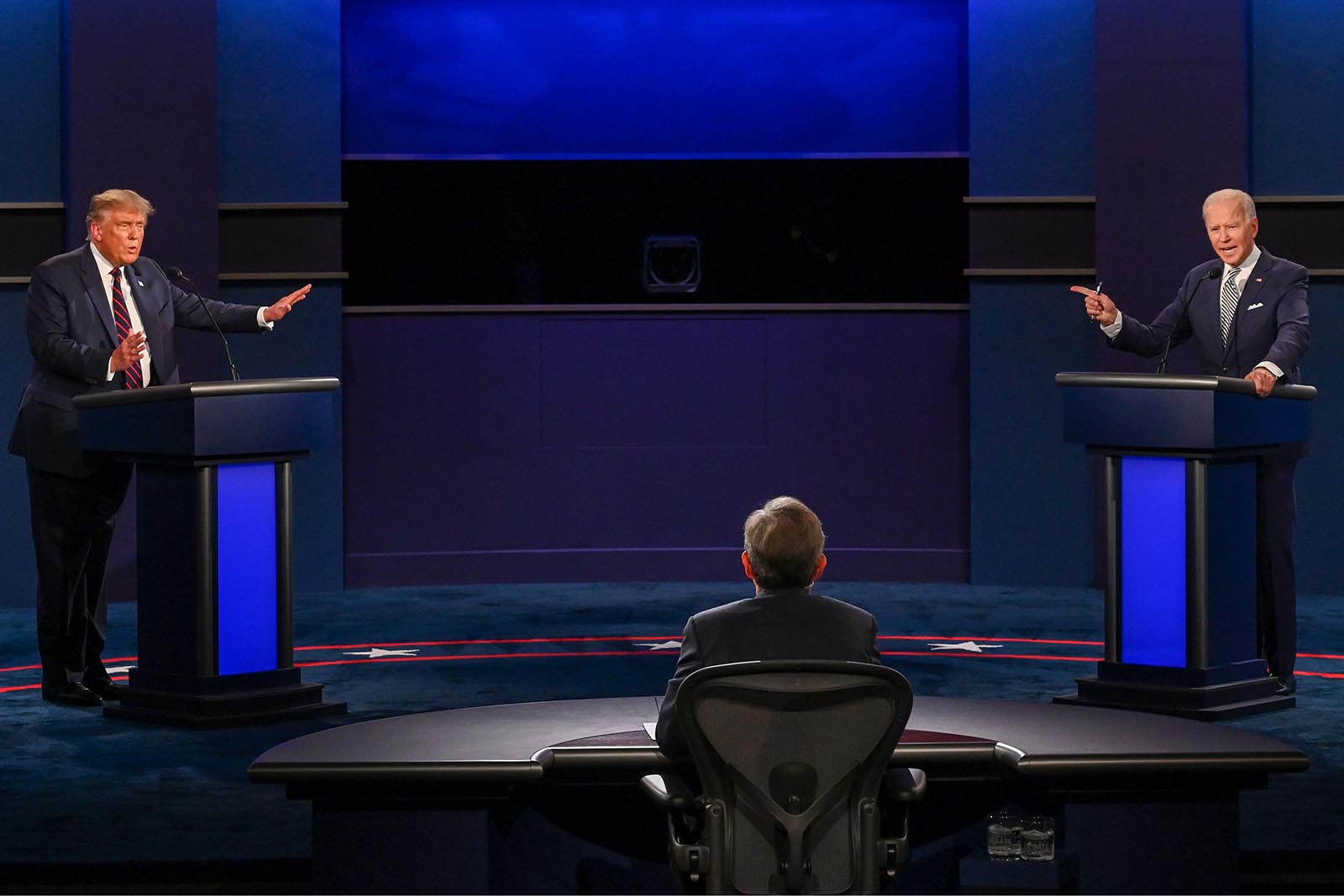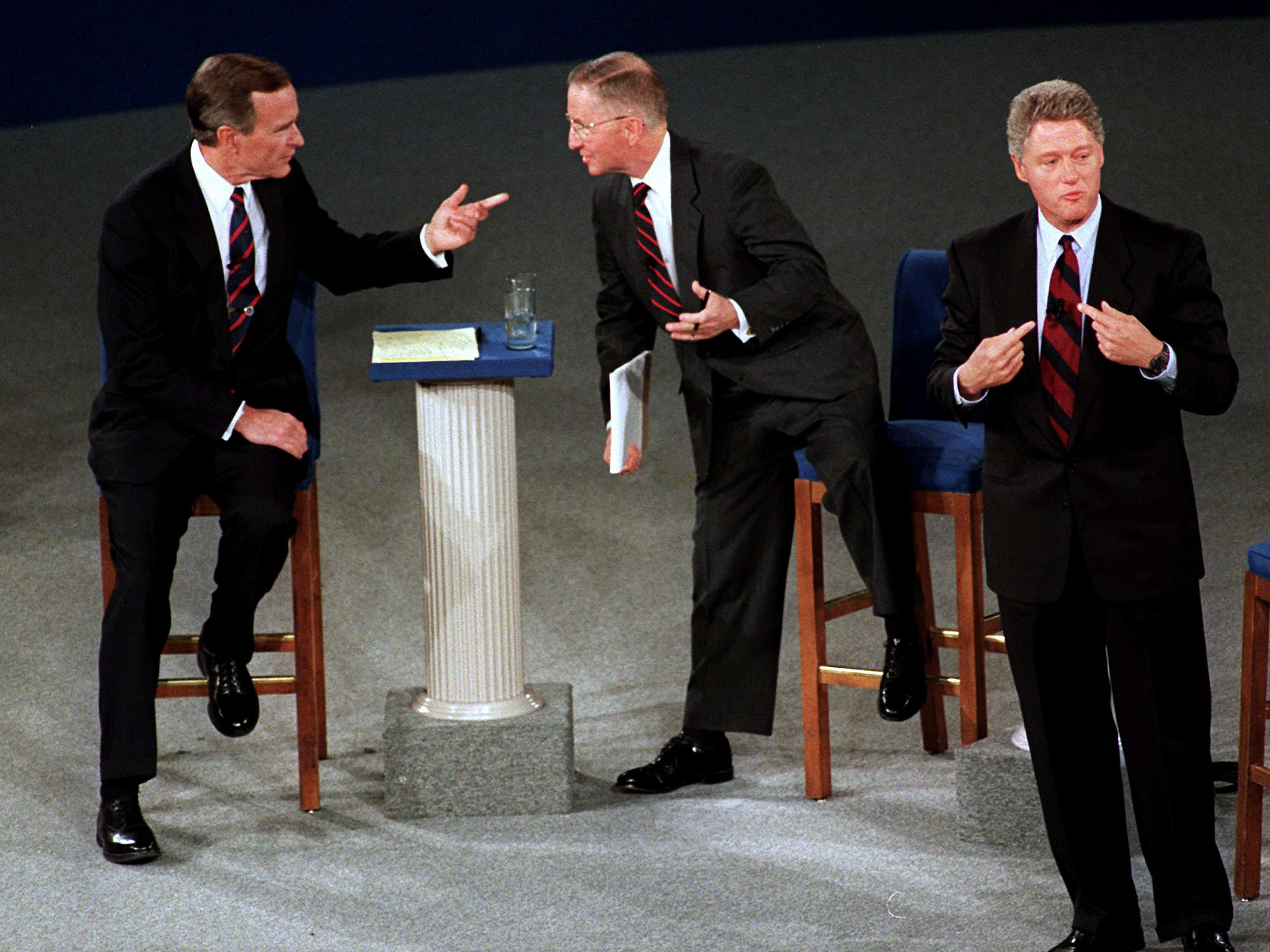Presidential Debate Analysis
The presidential debate covered a wide range of issues, including the economy, healthcare, and climate change. Both candidates presented their views on these issues and argued for their policies.
Candidates’ Main Arguments
Candidate A argued that the economy is strong and that his policies have led to job growth and rising wages. Candidate B argued that the economy is not working for most Americans and that his policies would help to create a more fair and just economy.
On healthcare, Candidate A argued that the Affordable Care Act has been a success and that he would work to protect it. Candidate B argued that the Affordable Care Act is a failure and that he would repeal and replace it with a new system.
On climate change, Candidate A argued that it is a serious threat and that he would take action to address it. Candidate B argued that climate change is not a serious threat and that he would not take any action to address it.
Effectiveness of Communication Strategies
Both candidates used a variety of communication strategies to make their case to voters. Candidate A used humor and personal anecdotes to connect with voters. Candidate B used facts and statistics to support his arguments.
It is difficult to say which candidate was more effective in their communication strategy. Both candidates had their strengths and weaknesses. Ultimately, it is up to voters to decide which candidate they believe was more persuasive.
Policy Positions: Watch Presidential Debate

Watch presidential debate – The candidates in the presidential debate hold distinct stances on various policy issues, reflecting their different political ideologies and priorities. These policies have significant implications for the nation’s future, affecting various sectors of society.
The following table Artikels the key policy positions of the candidates on crucial issues:
| Issue | Candidate A | Candidate B |
|---|---|---|
| Healthcare | Universal healthcare system | Market-based healthcare system with expanded access to insurance |
| Climate Change | Aggressive action to reduce emissions | Gradual approach to reduce emissions, prioritizing economic growth |
| Education | Increased funding for public education | School choice and vouchers for private education |
| Immigration | Path to citizenship for undocumented immigrants | Stricter border control and reduced legal immigration |
| Taxes | Progressive tax system with higher rates for the wealthy | Flat tax system with lower rates for all |
The implications of these policies are far-reaching. Candidate A’s policies aim to provide greater social equity and access to essential services, potentially benefiting lower-income households and marginalized communities. Candidate B’s policies emphasize individual responsibility and economic growth, potentially favoring higher-income earners and businesses.
The impact of these policies on various sectors of society is complex. For example, Candidate A’s healthcare policy could lead to lower healthcare costs for individuals and families, but it may also result in higher taxes. Candidate B’s climate change policy could promote economic growth in certain industries, but it may also lead to job losses in sectors reliant on fossil fuels.
Historical Context

Presidential debates have a rich history that dates back to the 19th century. The first known presidential debate was held in 1858 between Abraham Lincoln and Stephen Douglas. The debate was a series of seven debates held in Illinois and focused on the issue of slavery.
The format of presidential debates has evolved over time. In the early days, debates were often held outdoors and could last for several hours. In the 20th century, debates began to be held indoors and were typically limited to one or two hours. The first televised presidential debate was held in 1960 between John F. Kennedy and Richard Nixon. The debate was a major turning point in the election and helped Kennedy win the presidency.
The media has played a major role in shaping public perception of presidential debates. In the early days, newspapers and magazines were the primary sources of information about debates. In the 20th century, radio and television became the dominant sources of information about debates. The way that the media covers debates can have a significant impact on how the public perceives the candidates and the issues.
Evolution of Debate Formats, Watch presidential debate
The format of presidential debates has evolved over time to reflect changes in technology and the media landscape. In the early days of debates, candidates would often speak for hours at a time, with few interruptions from the moderator. In the 20th century, debates began to be more structured, with candidates given specific time limits for their answers. The first televised presidential debate in 1960 was a major turning point in the evolution of debate formats. The debate was held in front of a large television audience and helped to make presidential debates a major event in the election process.
Since the 1960s, the format of presidential debates has continued to evolve. In the 1970s, debates began to include more direct interaction between the candidates. In the 1980s, debates began to be held in front of larger audiences. In the 1990s, debates began to be held in more informal settings.
The evolution of debate formats has been driven by a number of factors, including the changing media landscape, the increasing importance of television in the election process, and the desire to make debates more engaging for voters.
Role of the Media
The media plays a major role in shaping public perception of presidential debates. The way that the media covers debates can have a significant impact on how the public perceives the candidates and the issues. For example, the media can focus on the candidates’ appearance, their body language, or their gaffes. The media can also choose to highlight certain issues or candidates over others.
The media’s coverage of presidential debates can be biased. For example, the media may favor one candidate over another or may focus on negative aspects of a candidate’s performance. The media’s bias can have a significant impact on public opinion.
Despite the potential for bias, the media plays an important role in informing the public about presidential debates. The media provides the public with information about the candidates, the issues, and the debates themselves. The media also helps to set the agenda for the debates and to frame the issues that are discussed.
Watching the presidential debate can be an intense experience, but sometimes you need a break. If you’re looking for a way to relax and enjoy the game, check out the Chicago Sky. They’re one of the most exciting teams in the WNBA, and their games are always a lot of fun to watch.
You can catch their next game on ESPN2.
The time for the presidential debate is crucial. Tune in to witness the clash of ideas and policies that will shape our future. Visit what time is the debate to find out the exact time and be a part of this historic event that will influence the course of our nation.
In the midst of the heated presidential debate, I found myself yearning for a respite. As I reached for my remote, my mind wandered to the upcoming Indiana Fever vs. Chicago Sky basketball game. The anticipation of witnessing such a thrilling matchup filled me with excitement, providing a momentary escape from the political discourse.
The presidential debate is an event that many people look forward to. It is a chance to hear the candidates’ views on the issues and to get a better understanding of their policies. If you are planning to watch the debate, you may be wondering what time it starts.
To find out, you can check the news or visit a website like what time is the debate tonight?. Once you know the time, you can set a reminder so that you don’t miss it. The debate is sure to be an interesting and informative event, so be sure to tune in.
The presidential debate is a much-anticipated event, and many people are eager to tune in and watch the candidates discuss their policies and visions for the country. If you’re wondering what time the presidential debate is, you can find out by clicking here.
Once you know the time, you can set a reminder so you don’t miss it. Watching the presidential debate is a great way to learn more about the candidates and their positions on the issues.